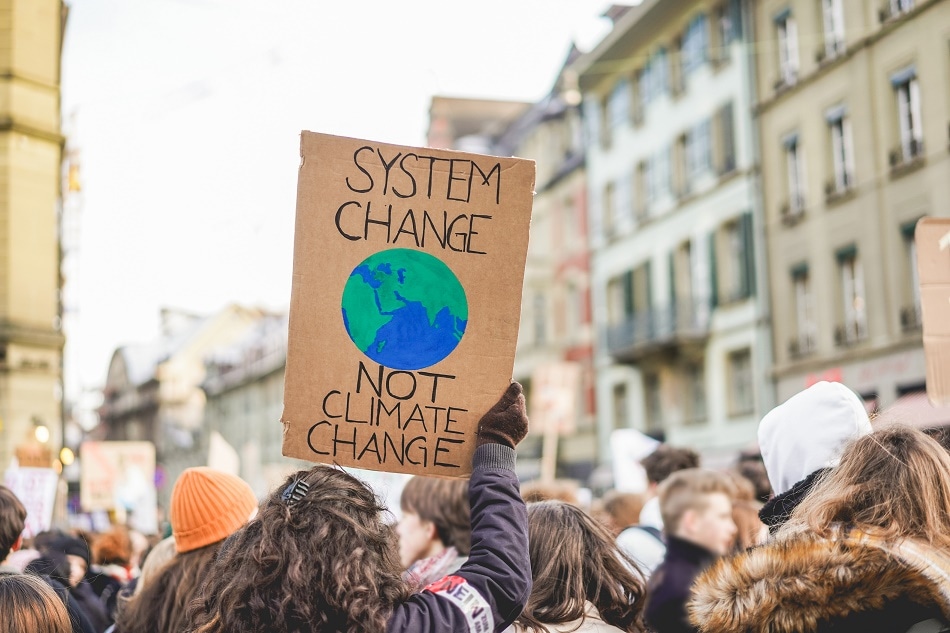 Image credit: DisobeyArt / Shutterstock.com
Image credit: DisobeyArt / Shutterstock.com
The current climate emergency has more to it than just being a portent of natural disaster and provoking questions about how we should rethink our consumer habits. This very real crisis has led to the UN warning that our fundamental human rights are under threat. The daunting prospect of which is not localized to any particular region either, but has the UN suggesting that this would be a global threat.
Michelle Bachelet, the UN rights chief, recently told the UN council in Geneva, “The world has never seen a threat to human rights of this scope.” Bachelet also made reference to the fires that are raging through the Amazon and the dire situation the indigenous people find themselves in, a predicament that is not just threatened by the fires themselves but also the deforestation taking place that destroys their lands.
Other topics on the agenda included condemnation for the hostilities leveled at climate activists as well as giving stern criticism to those set out to personally disparage and abuse the young campaigner, Greta Thunberg. “This is not a situation where any country, any institution, any policymaker can stand on the sidelines,” added Bachelet.
The UN’s 42nd session of the council opened with a short vigil being paid to the victims of Hurricane Dorian in the Bahamas as a minute’s silence was given. The official death toll of the Bahamian hurricane has now reached 50 with some 70,000 people in need of food and shelter as thousands of homes have been laid to waste. The sheer force of the tropical cyclone that hit was aggravated by a warmer climate.
The storm accelerated with unprecedented speed over an ocean warmed by climate shifts, becoming one of the strongest Atlantic hurricanes ever to hit land.
Michelle Bachelet, the UN rights chief
Island states like the Bahamas and the Marshall Islands have already experienced the impacts of climate change, with the latter already displacing the population from their pacific home to American states such Arkansas, Hawaii and Portland. This new wave of climate refugee is not something to be lightly ignored either as the crisis could soon surge towards a breaking point as rights to work and adequate housing become a major problem.
Furthermore, the inhabitants of these low-lying archipelagos are victims of further consequences, especially for those in the wake of natural disasters as seen in the Bahamas, due to access to water, sanitation, food and healthcare becoming scarce. The UN council is calling for increased intervention and international action in order to allay the impacts of climate change.
However, one of the ongoing concerns the UN has is with the US’s decision to withdraw from the human rights council last year as Bachelet was quick to point out her point of view regarding the Trump administration’s treatment of migrant children. “Notably, I am alarmed that migrant children continue to be detained in centers in both the U.S. and Mexico, contravening the best interests of the child, which is a fundamental tenet of international law,” she said.
How it ties in with the issues concerning the threat of the climate emergency is that often many other countries look towards the US to promote and protect human rights around the world. Without a strong influential presence, or good example to follow from one of the world’s leading powers, it becomes increasingly difficult to maintain a global standard and uphold decent human rights laws.
Bachelet’s other remarks may have also angered the notorious Brazilian president, Jair Bolsonaro, as she said, “The fires currently raging across the rainforest may have catastrophic impact on humanity as a whole, but their worst effects are suffered by the women, men and children who live in these areas.” Bolsonaro has recently hit back at UN’s rights chief over other comments in which she decried the deteriorating rights situation in Brazil and the wider Amazon region – he accused her of being an interfering presence.
Another concern of the human rights council is the scale at which the climate crisis is influencing global security. It is thought that 40% of civil wars over the last 60 years have been a consequence of environmental degradation. Bachelet cited the Sahel region in Africa as an example for increased competition for resources already in short supply.
This often leads to inflamed tensions, outbreaks of violence and political uncertainty in the affected regions. This has the potential to lead to an unprecedented worldwide refugee crisis as populations could be displaced by war and climate change putting an even greater stress on those responsible for maintaining fundamental human rights.
Whilst there are those quick to criticize those who speak up and take action over the destructive will of the climate emergence, the issue remains very real. This year alone, whether it be as a consequence of the warming climate or the direct human impact, the disaster toll has accelerated across both hemispheres of the globe. From the recent Hurricane Dorian in the Bahamas; the Queensland Bushfires in Australia; Melting and loss of glaciers in Iceland; and the scale of apocalyptic Amazonian fires; it seems the headlines are coming thick and fast declaring the true state of this emergency.
The current crisis is a direct result of human impact on the planet from our industrial practices to our consumer habits. The time is on us now to take action and help restore balance to the world we live in, not just for the sake of our immediate surroundings and home comforts but for the rights and lives of humans all around the world.
Disclaimer: The views expressed here are those of the author expressed in their private capacity and do not necessarily represent the views of AZoM.com Limited T/A AZoNetwork the owner and operator of this website. This disclaimer forms part of the Terms and conditions of use of this website.